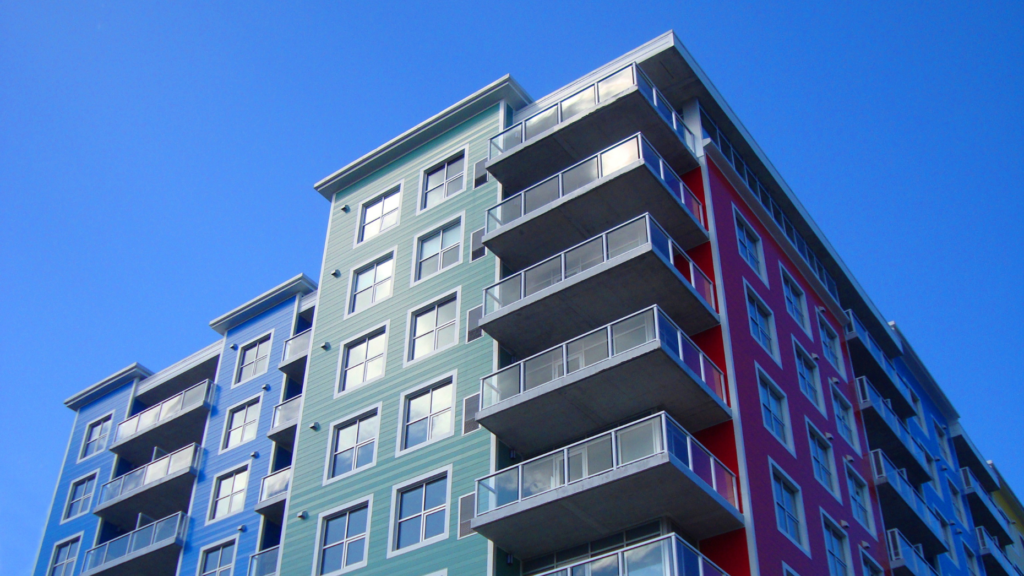When owning multifamily properties in multiple markets, there is a gap that must be bridged between owners and those serving their interests. While technology makes this easier, it is no substitute for personal attention and effective communication.
I’ve got to admit that even after many years in multifamily real estate, there is a certain thrill to deal-making, a rush that results from pursuing and consummating a transaction. Yes, there are a mind-numbing number of details involved. Yes, there are i’s to dot and t’s to cross. But I relish the challenges, fully cognizant of the potential payoff.
It’s after the deal closes that a new set of challenges emerges. In our case, we own properties not only in Illinois, but in Tennessee and Texas, meaning there is a gap that must be bridged between ourselves and those serving our interests on-site.
Communication is obviously crucial as we look to meet residents’ needs, and because technology is what it is today, those communications have almost become routine. Not only can we reach out to our managers via phone, Zoom or email when necessary, we can track KPIs at each of our properties via a dashboard.
As a result, a main office can be pretty much anywhere and have access to all of the data and reporting on a particular property. The idea that a property has to be located within the city or within driving distance of where ownership maintains its office simply doesn’t hold water.
I don’t see proximity as a criteria for investing or buying property. It’s more what the return is, the growth of the particular market, and the vibrancy of the market because the barriers of distance have been totally erased.
Still, there are certain common-sense steps that must be taken to ensure that things run smoothly — that residents’ needs are met and their comfort assured. That amenities are upgraded and retention rates assured. That nothing is allowed to fall through the cracks.
Here are those steps:
Find the right property manager
The qualities we seek when looking to fill these roles are interpersonal skills and a strong work ethic — the first in order to work with residents, other staffers and independent vendors, the second to ensure that work is completed in a timely fashion.
We want someone who’s not worried about having to come in on a Saturday for an emergency, or working late because something’s gone sideways on the property. That’s very important. We look for people who are driven to improve operations, and we reward them accordingly.
Many sites offer advice on choosing the right manager, and some of the advice is the same as it would be for positions in other professions — check their references, examine their work history, and so on.
Of particular interest was a post on the website Bungalow.com, which emphasized doing a deep dive on the interview, with a particular examination of the candidate’s marketing abilities, ability to fill vacancies and ability to handle maintenance requests, whether by performing the task themselves or knowing of contractors who can do so.
That same site noted that it is valuable to visit previous properties where the prospective manager worked, in order to ascertain how things were handled there.
Maximize your tech stack
The pandemic made abundantly clear how important technology is for every business, the multifamily sector included. That’s true not only for the above reasons — communication between owners and managers, tracking KPIs, etc. — but also for residents and prospective residents.
Consider virtual tours, which enable prospects to get a sense of the property without going there first. Granted, there is no substitute for making the effort to visit, as that will offer a truer picture, not only of the property itself but the surrounding neighborhood, but a virtual tour certainly has its place.
Also, consider the convenience of online rent collection or the importance of tenant portals, which enable them to arrange maintenance calls and the like.
Kaycee Kisling, Managing Director of Multifamily Investments at Mark-Taylor Residential in Phoenix, was quoted on the National Apartment Association’s website as saying that her organization had “the mindset to never let a good crisis go to waste,” the result being that she and her cohorts “really focused on what changes are here to stay and what things are going to transform our industry moving forward” during the pandemic.
And indeed, that mindset has been commonplace throughout the industry.
Understand the continuing value of face-to-face interactions
The truth is, it’s almost too easy to manage properties from afar. While we once visited all our properties once a quarter, we now do so twice a year — and at the height of COVID-19, those visits were obviously curtailed even further.
While neither communications nor the property suffered as a result — we were still in constant contact with all our managers — there remains value in making the effort to get on a plane and visit your property in person. There is value in sitting down for lunch or dinner with local staff and bonding with them. That’s what was missed, and that’s what is still needed.
If, for example, there’s a particular renovation or upgrade we’re considering, it’s good to physically be there and see it. Same for some deferred maintenance that needs our attention. Our managers are trained to respond to such matters, but it still pays to travel to the site and evaluate things for oneself.
The bottom line? Technology has made property management easier; there’s no denying that. At the same time, it’s not the entire answer. There is still a need for the human touch, still a need for personal attention. That ensures the best possible outcome, for all involved.
Michael H. Zaransky is the founder and managing principal of MZ Capital Partners in Northbrook, Illinois. Founded in 2005, the company deals in multifamily properties.



 Are You Interested in West Eleventh Residences Miami?
Are You Interested in West Eleventh Residences Miami? Are You Interested in ONE Park Tower by Turnberry?
Are You Interested in ONE Park Tower by Turnberry? Are You Interested in Diesel Wynwood Condominium?
Are You Interested in Diesel Wynwood Condominium? Are You Interested in Five Park Miami Beach?
Are You Interested in Five Park Miami Beach? Are You Interested in Cipriani Residences Miami?
Are You Interested in Cipriani Residences Miami? Are You Interested in Bentley Residences Miami?
Are You Interested in Bentley Residences Miami? Are You Interested in Baccarat Residences Brickell?
Are You Interested in Baccarat Residences Brickell? Are You Interested in Aria Reserve Miami?
Are You Interested in Aria Reserve Miami? Are You Interested in 888 Brickell Dolce & Gabbana | Miami?
Are You Interested in 888 Brickell Dolce & Gabbana | Miami? Are You Interested in 600 Miami WorldCenter?
Are You Interested in 600 Miami WorldCenter? Are You Interested in HUB MIAMI RESIDENCES?
Are You Interested in HUB MIAMI RESIDENCES? Are You Interested in WALDORF ASTORIA RESIDENCES?
Are You Interested in WALDORF ASTORIA RESIDENCES?